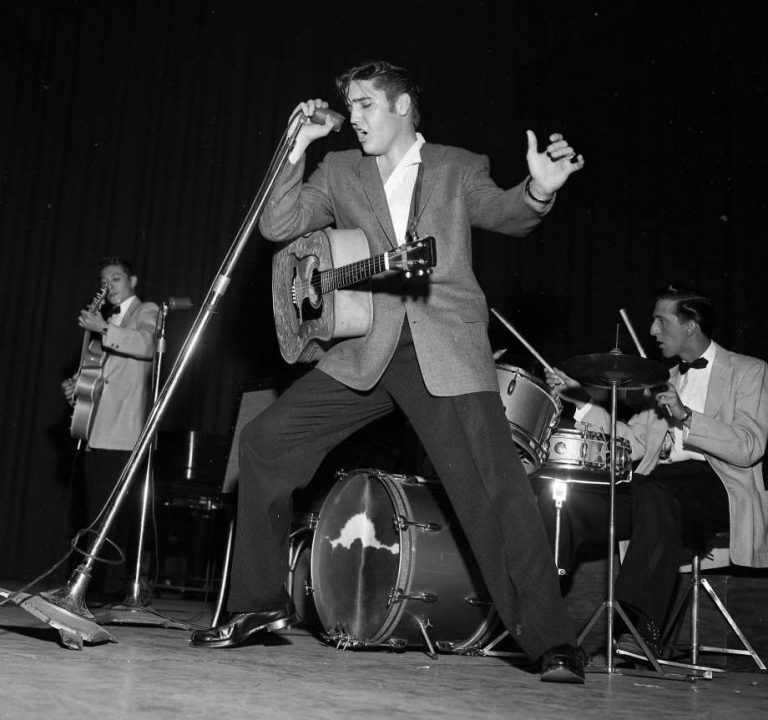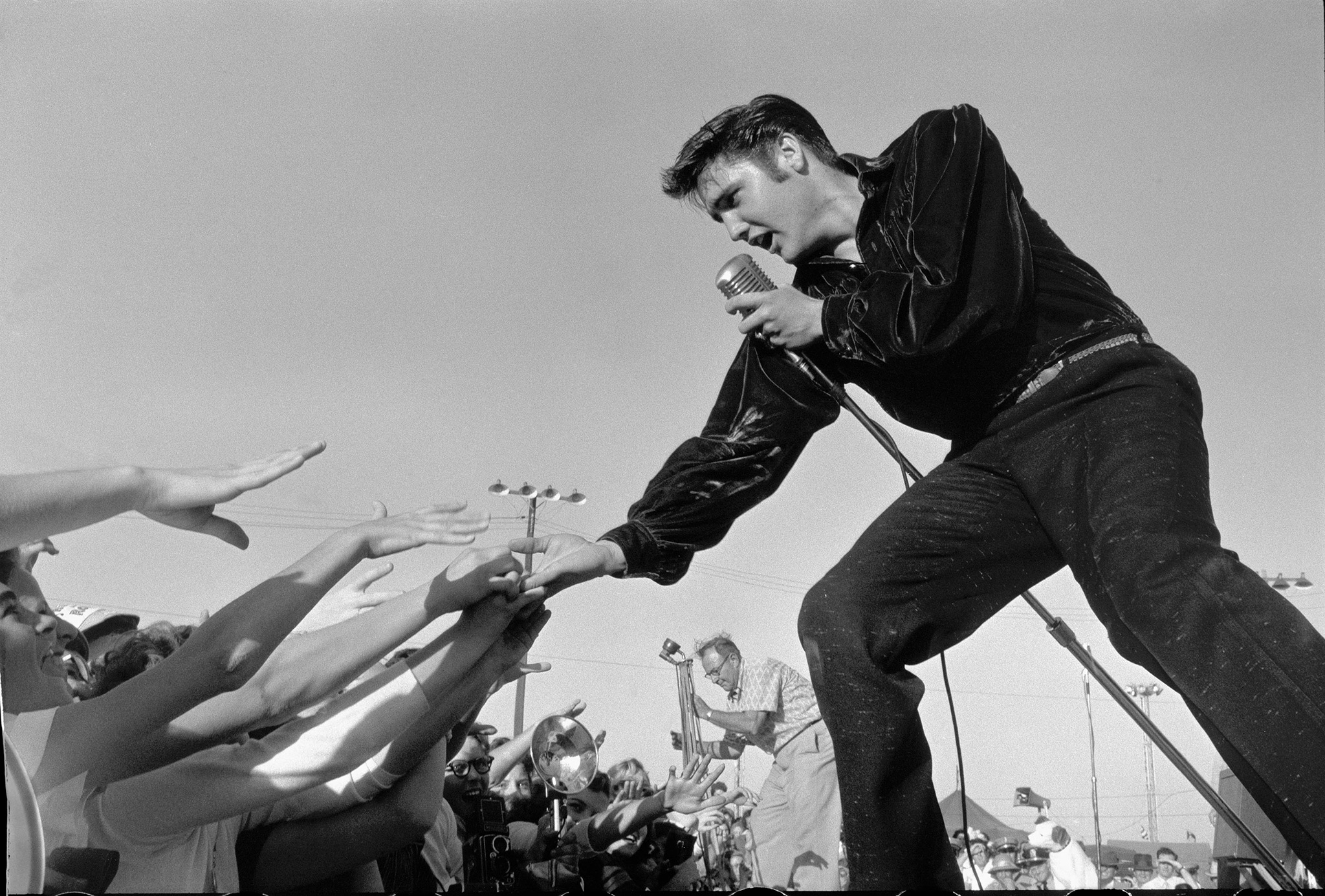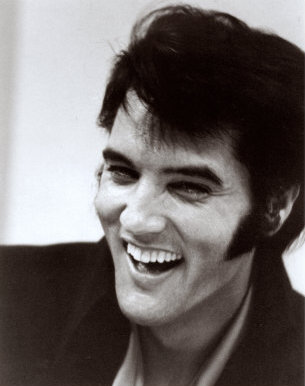
It feels like he’s still with us.

By Megan McKinney
Elvis has been gone for close to a half century and yet he seems to be around us as much as ever. We have Baz Luhrmann’s ELVIS, with Austin Butler winning a Golden Globe Award for being Elvis, as well as current buzz that he could do the same on Oscar night. And news of the sudden, tragic loss of Elvis’ only child. So, I think I’ll go back once again to writing about Elvis myself.
I well remember Elvis, having spent one long Elvis afternoon, during which I watched him perform —we were nearly face to face —then conversed with him one on one and, finally, interacted with him as a part of a group. During much of it, I observed a sweet, unsophisticated young man at close hand. He was exactly what I had expected and yet not at all so.

As a writer in the New York bureau of TV Guide magazine, I was invited to attend a rehearsal of one of the several Ed Sullivan Shows on which Elvis appeared during the early years and asked to remain for a press conference, before which I could talk with Elvis privately.
I entered CBS TV Studio 50 through the 53rd Street stage door, having passed police barricades that barely contained boisterous waves of prenubile hysteria and was met there by Gene Shrott, Mr. Sullivan’s CBS press representative at the time.
Gene escorted me down a flight of precarious-looking stairs, through a dark and unfinished basement area beneath the stage, up a rickety ascent and into the north wing. The afternoon rehearsal was in progress when I took my seat, but the theater was black and strangely silent.
Suddenly—shockingly—the stage exploded into red light, dark music and—directly in front of me, only a few feet away—that singular, riveting presence.
My first glimpse of Elvis when the lights went on that afternoon.
I don’t even remember the song, though I think it was “Hound Dog.” What I do remember—vividly–is the power of this young performer, the charisma of the man—the mouth, alternatingly pouting, leering, grinning . . . the sensual, almost feminine modeling of the facial contours and the eyes—those erotic eyes with their kohl-like shadows, promising . . . threatening. And, of course, the notorious pelvic thrusts.
While the experience was not unlike stopping to have the oil checked on the Natchez Trace, it was decidedly more dramatic and startling.
Ed Sullivan in serious pelvic thrust discussion with Elvis during the show’s rehearsal.
After the rehearsal’s end, I joined other members of the press to watch the administering of a polio shot, memorable primarily because at the time Elvis exhibited a wholesome fear of needles.
It was a scary experience for Elvis, but, as always, he managed a smile for the camera.
I was also able to have a close look at his manager, Colonel Tom Parker, who was the first grown man I had ever seen wear a sport jacket over a T-shirt, while keeping his hat on indoors and in the presence of women. 
Colonel Parker with a primping Elvis and Ed.
Most of all, I was struck by the genuine sweetness, the exaggerated politeness and remarkable simplicity of this young man. The Tupelo Terror, Elvis the Pelvis, the most famous and scandalous man in the United States at the time, was actually a thoroughly unsophisticated and unspoiled country boy whose Mama had taught him—always—to say “Yes, ma’am” and “No, suh.”
A very bored press rep, Gene Shrott, and an even more bored Ed Sullivan with Elvis.
Somehow, the simple boy at the afternoon’s press conference neutralized the impact of the onstage Elvis, and he retreated to the periphery of my consciousness, along with Jimmy Breslin, Joe Namath and Mary Quant—figures central to their own worlds, but not to mine.
Well into the press conference with more of Gene, Elvis and Ed—plus, a girl writer from TV Guide in the front row .
So when the news burst forth that Elvis had died, I knew August 16, 1977 was an historic occasion and should be treated as such. I acquired a supply of Memorex tape and a ceremonial quart of Jack Daniels. I was then living in Philadelphia where Classic Country was at its zenith, with several local radio stations featuring it, and I knew there would be a fine musical obituary on one of them.
There was. And I still have the extraordinary document I recorded that night—Elvis’ great early songs interspersed with commentary and snippets from an interview with his father, Vernon Presley, recorded earlier that day. Occasionally l pull the tape out of a drawer and play it again, remembering the Elvis I observed that afternoon in CBS TV Studio 50—the sweet, unsophisticated boy from Tupelo, Mississippi who galvanized the world.
Photo Credit: Press Department, CBS Television Network
Author Photo: Robert F. Carl












